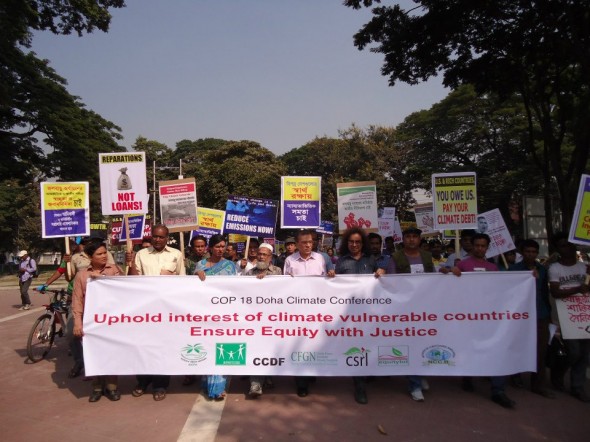 One area of collaborative work in progress is global justice and environmental stress. There are good reasons for those in national and international leadership to be concerned with the migration induced by climate change and other environmental stressors. Individual and community decisions to migrate or to adapt to a deteriorating or vulnerable environment are deeply related to issues of economic opportunity, politics, social justice, poverty, and sustainability. To understand these pressures and their impact on migration, we also need to understand the sources of family and community resilience that affect individuals’ and communities’ assessment of the relative risks to livelihood and habitat. We are interested in the role of 1) individual behavior, 2) access to resources, 3) legal context including land rights and global economic forces, and 4) informal structures such as community values, practices, and norms in the dynamics of the strain that people and the environment put on each other. Professor Ackerly is working with a team of social scientists, physical scientists, and engineers to explore these questions. The work entails opportunities for graduate students, post-docs, and highly motivated undergraduates.
One area of collaborative work in progress is global justice and environmental stress. There are good reasons for those in national and international leadership to be concerned with the migration induced by climate change and other environmental stressors. Individual and community decisions to migrate or to adapt to a deteriorating or vulnerable environment are deeply related to issues of economic opportunity, politics, social justice, poverty, and sustainability. To understand these pressures and their impact on migration, we also need to understand the sources of family and community resilience that affect individuals’ and communities’ assessment of the relative risks to livelihood and habitat. We are interested in the role of 1) individual behavior, 2) access to resources, 3) legal context including land rights and global economic forces, and 4) informal structures such as community values, practices, and norms in the dynamics of the strain that people and the environment put on each other. Professor Ackerly is working with a team of social scientists, physical scientists, and engineers to explore these questions. The work entails opportunities for graduate students, post-docs, and highly motivated undergraduates.
To read about Professor Ackerly’s work in Bangladesh on these matters, see “Bridges to Bangladesh,” a feature in Vanderbilt’s Arts and Science magazine in the Fall 2011 issue.
Collaborative Research on Human-Environment Coupling in Bangladesh
Project Summary: This collaborative research effort brings together social scientists, physical scientists, and engineers to investigate the critical interactions between natural and human systems that motivate the movement of large numbers of people. As a heavily populated,low-lying coastal nation, Bangladesh supports a mobile but adaptive population that is susceptible to numerous natural hazards, including widespread seasonal flooding, river erosion and channel avulsions, groundwater salinization, land loss from sea level rise, and recurrent cyclones. Within this context we seek to couple the study of the human-social dimensions of vulnerability, resilience, and migration with a realistic understanding of the physical environment and its modification by humans, particularly where these facets intersect in profound and unpredictable ways. Particular goals of the project are (1) to understand environmental factors that affect household decisions to migrate permanently; (2) to understand the social, political, economic, and environmental factors that affect household and community resilience and strategies for adaption (which includes migration); (3) to determine how these factors – including seasonal and unanticipated environmental changes – differ within and across particularly vulnerable social and environmental landscapes of Bangladesh; and (4) to assess how these variables interact and co-evolve to define the continually changing relationship between humans and their environment.
The project is in its early phase of research design. We are adapting and integrating existing research design methods as we develop a transdisciplinary approach for investigating the movement of people within complex coupled human-natural environment systems.
The current phase of the project is based in the Khulna region of Bangladesh in an area that has been affected by seasonal flooding, water-logging, salinization, and cyclones.